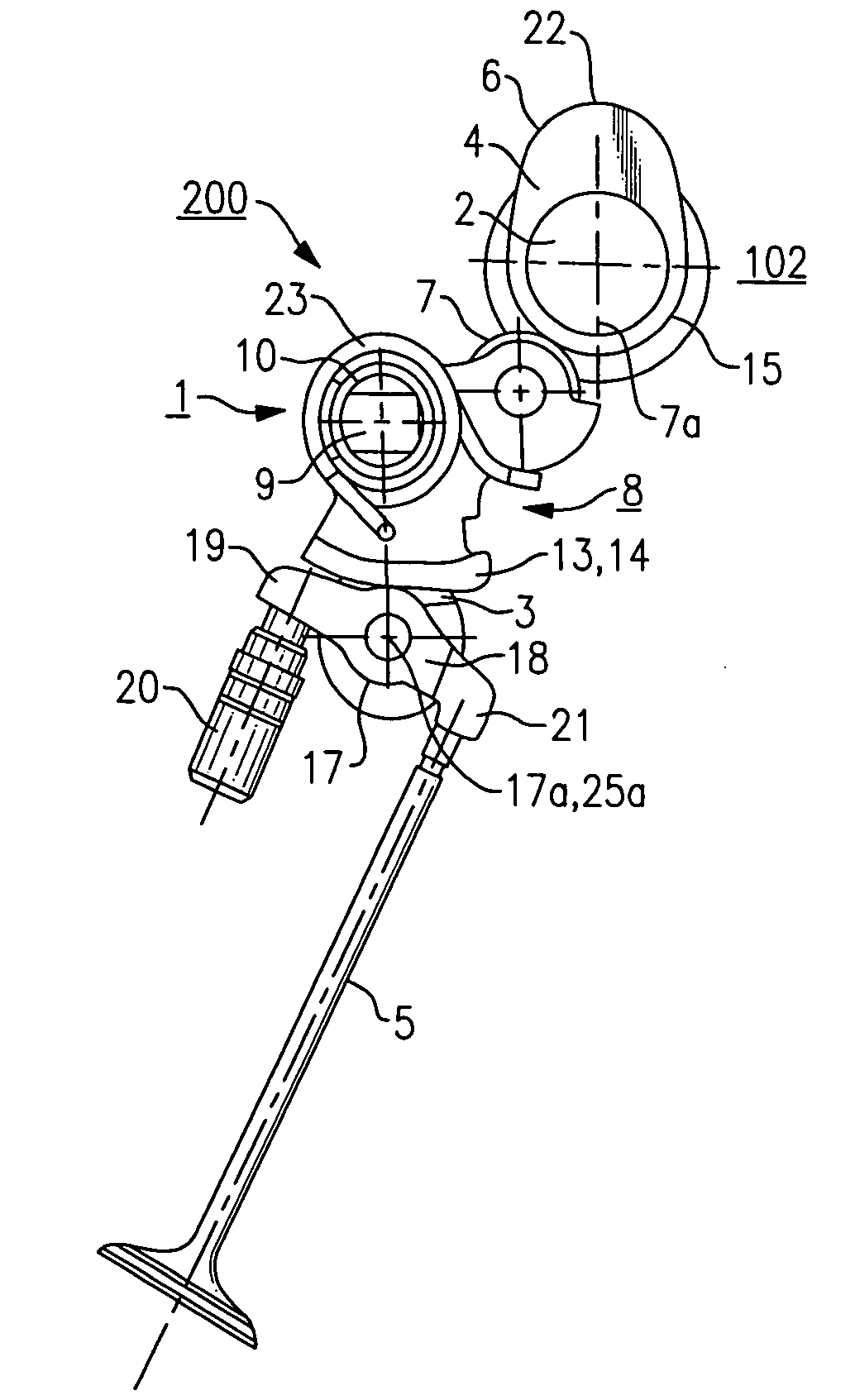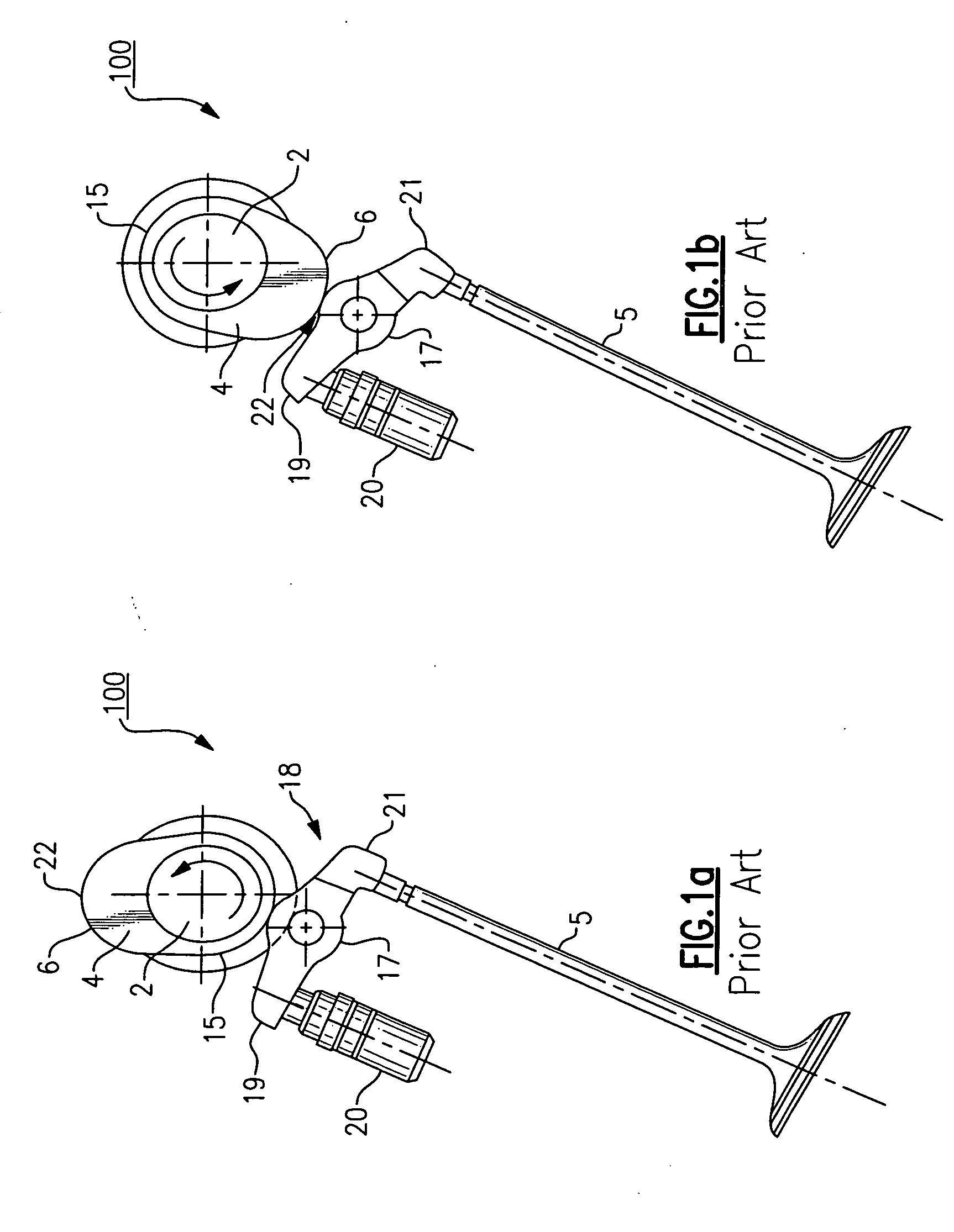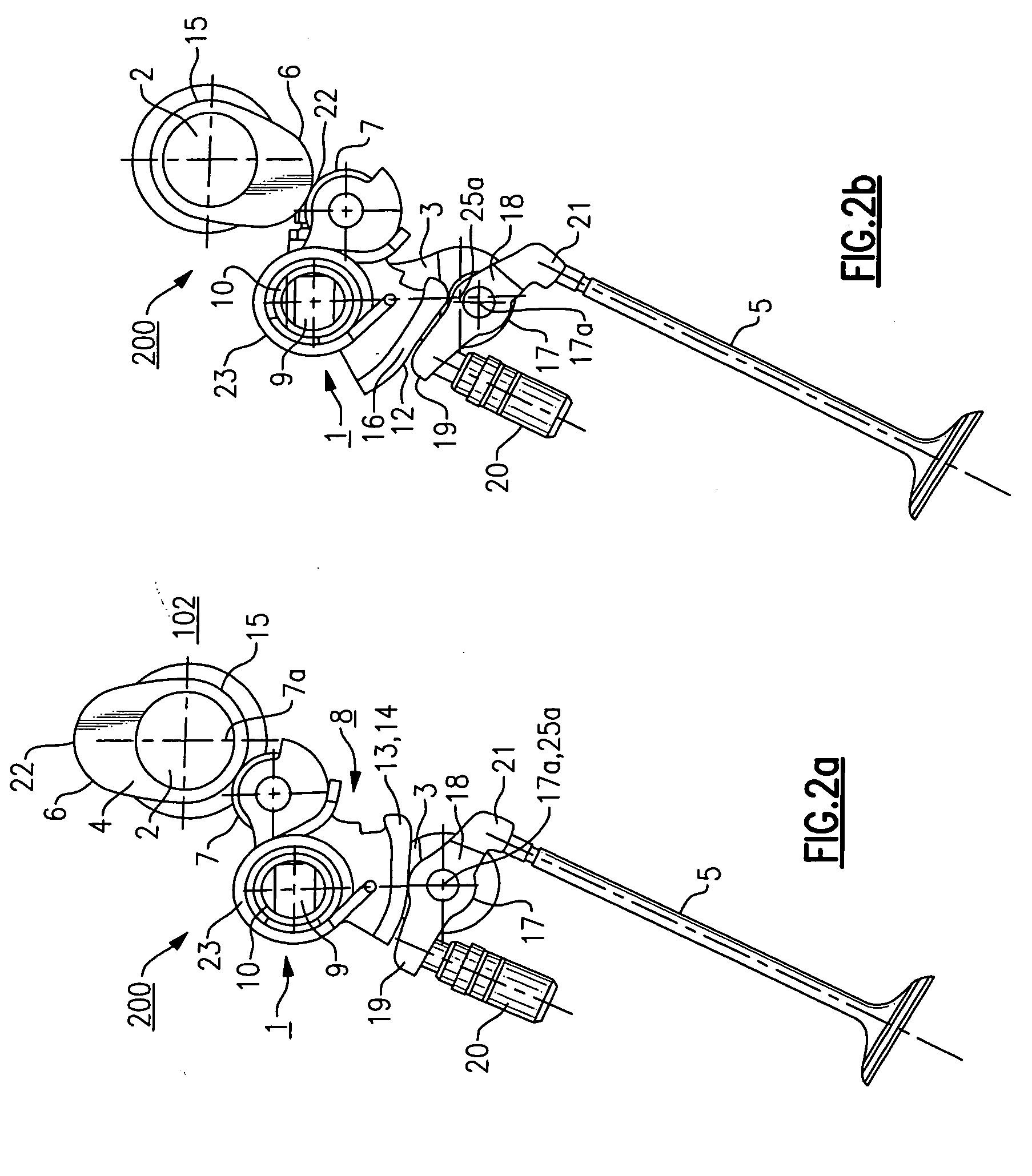System for variable valvetrain actuation
a variable valvetrain and valvetrain technology, applied in the direction of valve drives, machines/engines, mechanical equipment, etc., can solve the problems of increasing the cost of the entire conventional engine, requiring significantly more power than a conventional fixed-state system, and unable to achieve the effect of simple, cost-effective and energy-saving variable valvetrain actuation system, and simplifying the task of design optimization
- Summary
- Abstract
- Description
- Claims
- Application Information
AI Technical Summary
Benefits of technology
Problems solved by technology
Method used
Image
Examples
embodiment 600
[0085] In embodiment 600, carrier control shaft 634 replaces the above described plurality of bolted together segments 34,35,36,37,38 forming a single control shaft for system 200. The individual crank elements in the form of pivot arms 603 and shank pins 625 are joined by bridges 641. The previous plurality of pivot pins 9 are replaced by a single rocker pivot shaft 609 that extends through bores 660 in carrier control shaft 634 to pivotably support rocker assemblies 608.
[0086] Each rocker subassembly 608 comprises a rocker frame 628 substantially the same as rocker frame 28 except that provision is made for replacement of bronze bearing insert 10 with a needle bearing assembly 610 to reduce friction of rocker subassembly 608 on rocker pivot shaft 609. Rocker roller 7, with shaft and bearing 33 is unchanged, as is return spring 23.
[0087] In operation, carrier control shaft rotates about the axis 627 of shank pins 625, thereby displacing rocker pivot shaft 609 through an angle 202 ...
embodiment 700
[0090] A base module 880 includes base sections 872, corresponding to base sections 772 in embodiment 700, joined by runners 882, each base section 872 including half-journals 884 for supporting shank pins 625 of VVA sub-assembly 600. Base module 880 may also include dowel pins 881 extending from the undersurface thereof to provide accurate alignment of the entire VVA assembly 800 with an engine head 891.
[0091] A main body module 884 includes a plurality of arbor center sections 874 corresponding to center sections 774 in embodiment 700, sections 874 being connected by runners 886, each arbor center section including upper half-bearings for shank pins 625, bottom half-bearings 888 for supporting camshaft 2, and slotted openings 890 for rocker pivot shaft 609. In one aspect of the invention, the width 893 of one or more slotted openings 890 may be sized to serve as positive end stops for shaft 609 as shaft 609 sweeps through its desired full arcuate path. Note that the slotted openin...
PUM
 Login to View More
Login to View More Abstract
Description
Claims
Application Information
 Login to View More
Login to View More - R&D
- Intellectual Property
- Life Sciences
- Materials
- Tech Scout
- Unparalleled Data Quality
- Higher Quality Content
- 60% Fewer Hallucinations
Browse by: Latest US Patents, China's latest patents, Technical Efficacy Thesaurus, Application Domain, Technology Topic, Popular Technical Reports.
© 2025 PatSnap. All rights reserved.Legal|Privacy policy|Modern Slavery Act Transparency Statement|Sitemap|About US| Contact US: help@patsnap.com



